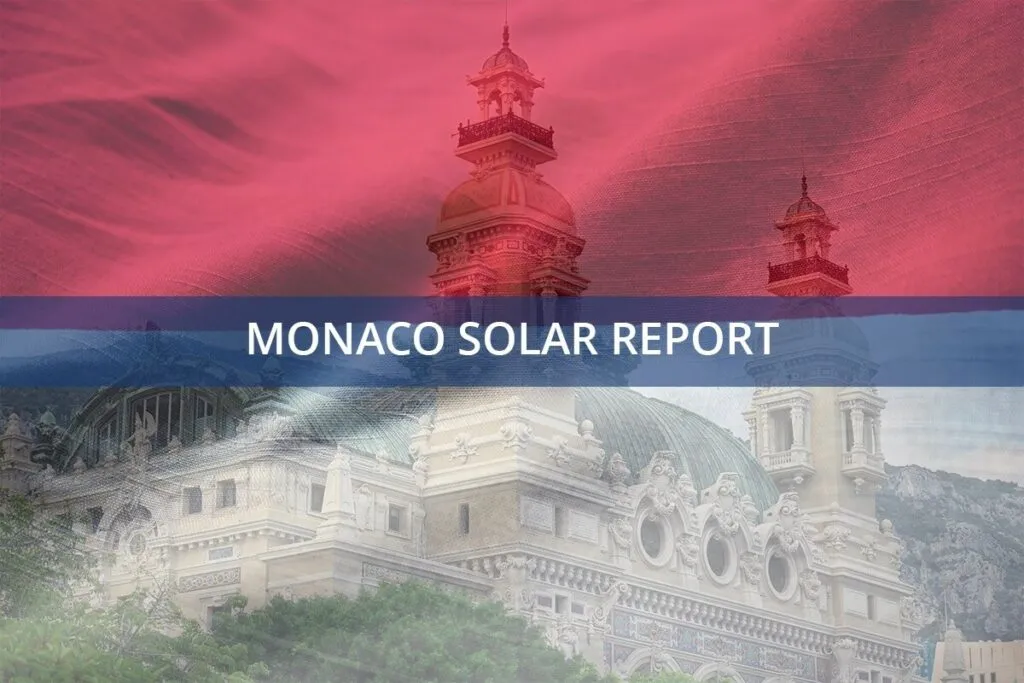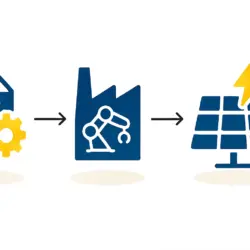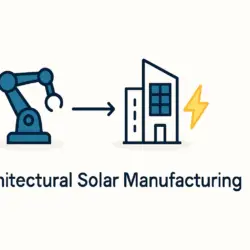After a period of explosive growth, the European solar workforce is set to face its first contraction in nearly a decade. According to the latest EU Solar Jobs Report 2025 from SolarPower Europe, the sector is expected to see a 5% decrease in employment, shrinking from a record 865,000 jobs in 2024 to approximately 825,000 in 2025. This dip is primarily attributed to a slowdown in solar deployment and significant manufacturing challenges.
2024: A Peak Year Before a Brief Contraction in the European solar workforce
The European solar sector reached a new height in 2024, employing a record 865,000 people. However, this peak is expected to be temporary. The projected decline in 2025 is a direct consequence of several factors, including a cooling residential rooftop market following the post-energy crisis boom and intense competitive pressure on European manufacturers from global overcapacity.
For homeowners and tenants in Germany, this might translate to a more competitive market for installations, but it also highlights the fragility of the domestic supply chain. The slowdown underscores the complex basics of solar panel manufacturing and the economic pressures facing local companies.
Despite this short-term setback, the medium-term outlook remains positive. Projections show the workforce is expected to recover from 2026 onwards, potentially reaching over 916,000 jobs by 2029 and surpassing one million after 2030, provided the right policy frameworks are in place.
Germany Leads, But Faces a Shifting European Landscape for the European solar workforce
Germany is set to maintain its leadership position in European solar employment, with a workforce projected to reach 480,000 by 2027. However, its dominance may be challenged as other nations ramp up their solar ambitions.
Countries like Spain and Greece are poised for significant growth. The effort involved in building a skilled solar workforce in Greece is indicative of the strategic planning underway across the continent. Meanwhile, other nations continue to post strong numbers, such as the impressive 1.4 GW added in France in Q1 2025, demonstrating that the drive for solar capacity is not uniform and presents opportunities across different markets. This shifting landscape emphasizes the need for a pan-European strategy to manage both growth and consolidation.
Policy Recommendations to Sustain Growth of the European solar workforce
To navigate these challenges and ensure long-term stability, the SolarPower Europe report outlines several key policy recommendations. The focus is on tackling both the immediate skills shortage and the long-term competitiveness of the European manufacturing sector. The competitive pressure is immense, with established hubs like those detailed in the South Korea solar panel manufacturing report setting a high bar for efficiency and scale.
To bolster the European industry, it’s crucial to support the entire value chain, from securing solar panel raw materials to investing in advanced solar panel manufacturing machines. Ventures like the proposed solar factory in Ireland show that investment interest remains, but it requires a supportive policy environment.
Key recommendations include:
* Establishing a European Solar Skills Intelligence Hub to anticipate future needs.
* Securing stable, long-term funding for training and vocational programs.
* Ensuring inclusive and accessible career pathways into the solar industry.
The 2025 dip serves as a critical wake-up call. Continued investment is essential to meet Europe’s ambitious renewable energy targets, evidenced by milestones like the Hungary solar power peak. By addressing workforce challenges and implementing supportive policies for a robust domestic manufacturing process, Europe can ensure the continued growth of its solar industry beyond this temporary slowdown.
To gain a deeper understanding of the complexities and opportunities in solar manufacturing, consider enrolling in our free e-course on solar panel production.



